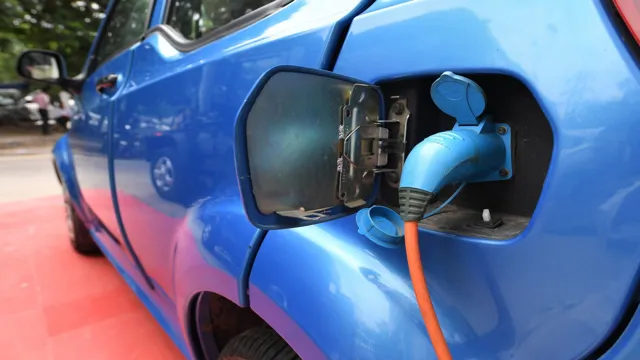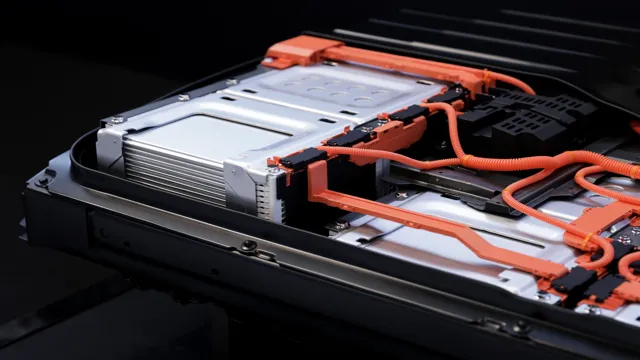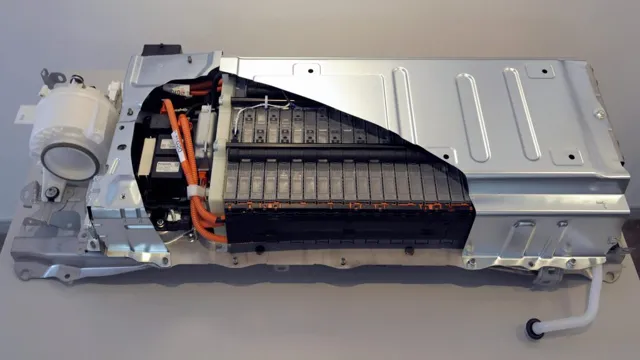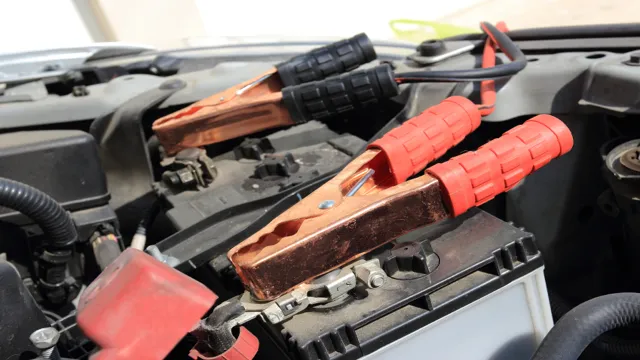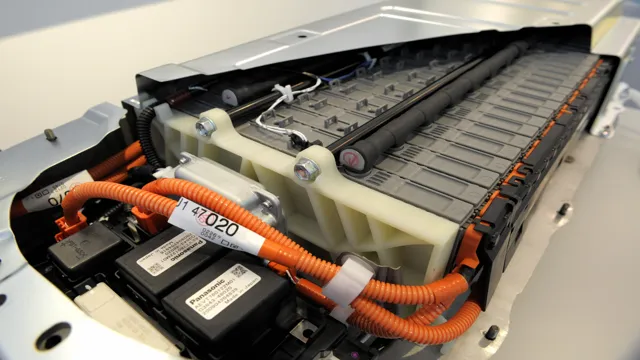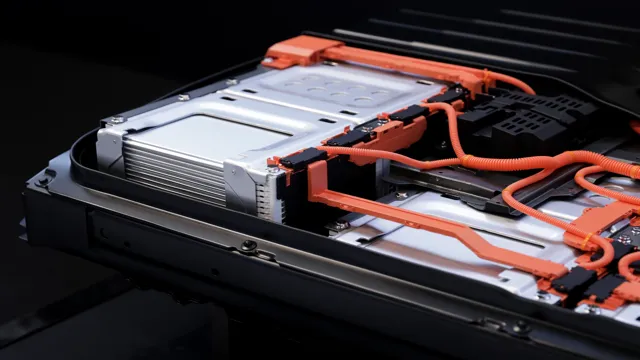Revolution or Conundrum: Is the Electric Car Battery Industry Heading Towards a Crisis?
Is the electric car revolution about to hit a roadblock? With the ever-increasing demand for electric vehicles, the production of electric car batteries has become a crucial aspect of the automobile industry. Despite advancements in technology over the past years, experts warn of a looming crisis: the limited supply of raw materials essential to the production of batteries. This situation could compromise the goal of a sustainable transportation future.
Imagine a powerful engine without fuel, which makes it unable to run. That’s the risk we face. So, what lies ahead for the electric car industry? Keep reading to find out.
The Growing Demand for Electric Cars
Electric cars are becoming increasingly popular, and for good reason – they are environmentally friendly and can save drivers money on gas over the long-term. However, there is a growing concern that electric car batteries are tomorrow’s crisis. While they are great for the environment, producing enough batteries to power millions of electric cars will create a large demand for lithium, cobalt, and other rare earth metals.
The production process for these metals is not sustainable and can be harmful to the environment. Furthermore, the disposal of these batteries can be a problem and may lead to additional environmental concerns. This growing demand for electric car batteries could lead to a strain on our resources, but it also presents an opportunity for innovation and the development of more sustainable ways to produce and dispose of these batteries.
It is important that we act now to address this growing concern and find solutions to create an environmentally-friendly and sustainable electric car industry.
Rising Sales Figures
A rising trend in the automotive industry is the growing demand for electric cars. With the increasing concern for environmental sustainability, more and more people are opting for electric vehicles. This is reflected in the sales figures, as we see an upward trend in the number of electric cars sold in recent years.
The shift towards electric cars is driven not only by environmental concerns, but also by the advancements in technology and the decreasing prices of electric vehicles. Moreover, electric cars offer significant cost savings to the owners in the long run, making them an attractive option in terms of both environmental friendliness and economic viability. As we move towards a future where sustainability is a top priority, electric cars are likely to gain even more popularity.
With major car manufacturers investing heavily in the development of electric cars, we can expect to see more options in the market. The growing demand for electric cars is not just a trend, but a reflection of a larger shift towards eco-friendliness and sustainability. As more people become aware of the benefits of electric cars, it is only a matter of time before they become the norm rather than just an alternative.
The future of the automotive industry is electric, and the rising sales figures are proof of this.
Government Support and Incentives
Electric cars are gaining significant attention due to the growing concerns about environment pollution and the depletion of non-renewable energy sources. As a result, many governments worldwide have started promoting electric vehicles by introducing different support and incentives schemes. For instance, some countries offer tax credits, rebates, and free charging stations to encourage the adoption of electric cars.
Additionally, many governments are also promoting electric vehicle manufacturing and providing funds for research and development in renewable energy. These initiatives not only reduce the carbon emissions but also help in the creation of new job opportunities in the energy sector. Therefore, the increasing government backing and incentives for the electric car industry are likely to drive significant growth and demand in the coming years.
The Environmental Impact of Electric Car Batteries
Electric car batteries are tomorrow’s crisis, and the environmental impact of these batteries cannot be ignored. While electric cars offer a cleaner alternative to traditional gas-powered vehicles, the batteries that power them actually come with their own set of environmental challenges. The manufacturing process for these batteries generates a large amount of carbon emissions, and the mining of the materials used in them can have negative effects on the environment and local communities.
Additionally, the disposal of these batteries can lead to toxic waste pollution if not handled properly. As more and more people switch to electric cars, it’s important that we address these environmental concerns and find more sustainable solutions for battery production and disposal. Only then can we truly reap the benefits of electric vehicles and reduce our carbon footprint.
The Mining Process and Damage to Ecosystems
Electric car batteries rely heavily on mining for their key components such as lithium and cobalt. The mining process for these materials can result in significant damage to the ecosystem, including water and air pollution, soil erosion, and habitat destruction. Additionally, the process can have negative impacts on the health of individuals living near the mining sites.
While electric cars themselves have lower emissions than traditional gasoline-powered cars, the production and disposal of their batteries must also be taken into consideration when evaluating their overall environmental impact. However, advancements in technology and sustainable mining practices can help to mitigate these negative effects and create a more sustainable future for electric vehicles.
Disposal and Recycling Challenges
Electric car batteries are becoming increasingly popular, as more people recognize the environmental benefits of driving electric vehicles. However, one major challenge facing the industry is the disposal and recycling of these batteries. The environmental impact of electric car batteries is significant, as they contain toxic metals and chemicals that can harm the environment if not disposed of properly.
The lifespan of electric car batteries is typically around 8-10 years, and after this time, they begin to lose their performance and have to be replaced. This leads to a large number of batteries that need to be recycled or disposed of responsibly. While some manufacturers offer recycling programs for their batteries, not all do.
It is essential that electric car battery manufacturers and consumers work together to find sustainable solutions for the disposal and recycling of these batteries to reduce their impact on the environment.
Carbon Footprint of Battery Production
Electric vehicles (EVs) are becoming increasingly popular due to their lower emissions, compared to traditional gasoline-powered cars. However, the environmental impact of EV battery production is a concern. The manufacturing process of EV batteries involves the extraction of minerals like lithium, cobalt, and nickel, which requires a lot of energy and can produce significant amounts of greenhouse gas emissions.
Additionally, the production of EVs has a higher carbon footprint compared to traditional cars due to the manufacturing process of the battery, which is the most significant contributor. However, studies show that the carbon footprint of EVs decreases significantly over their lifespan due to their reduced emissions. While there are environmental concerns surrounding the production of EV batteries, it is essential to note that EVs are still a more sustainable option in the long run, compared to gasoline-powered cars.
The Technological Advances Needed to Address the Crisis
Electric car batteries have become an indispensable part of the global fight against climate change. However, they also present a major challenge for the future. Today’s batteries can store only so much energy and need to be constantly recharged, which takes time and resources.
Moreover, the disposal and recycling of batteries pose additional environmental problems, making them a ticking time bomb. To address this crisis, we urgently need technological advances that can enhance the capacity, speed, and sustainability of electric car batteries. Researchers and scientists are already exploring new materials and technologies that can create more efficient batteries with larger storage capacity.
Additionally, recycling technology must be improved to address the issue of battery disposal and reduce the associated environmental damage. The race is on to discover and implement technological advances that can fully exploit the potential of electric car batteries while mitigating their negative impact on the environment.
Improvements in Battery Efficiency and Durability
Battery technology is constantly evolving, and improving the efficiency and durability of batteries is crucial in addressing the global environmental crisis. As more of our devices and transportation systems rely on batteries, it’s essential to reduce waste, increase efficiency, and extend their lifespan. One major technological advancement that has already made an impact is lithium-ion batteries.
These batteries have higher energy density, longer lifespan, and less degradation than their predecessors. However, there’s still much room for improvement, as they are not entirely environmentally friendly, and the demand for minerals like cobalt, which is required to produce lithium-ion batteries, is increasing. Scientists and researchers are working on developing alternatives to lithium-ion batteries, such as solid-state batteries, which have the potential for even higher efficiency and durability while reducing environmental impacts.
There are also efforts to explore new battery chemistries that don’t rely on rare minerals, like sodium-ion, zinc-air, and magnesium-ion batteries. Improvements in battery efficiency and durability will have a significant impact on reducing carbon emissions and building a more sustainable future.
Innovations in Recycling and Disposal Methods
As our planet faces an ever-increasing waste crisis, technological advances in recycling and disposal methods have become essential to address the situation. Innovations like waste-to-energy facilities, bioreactors, and plasma gasification have emerged as feasible alternatives to conventional landfills. While waste-to-energy facilities transform waste into electricity, bioreactors create an oxygen-free environment for the anaerobic breakdown of organic waste materials.
On the other hand, plasma gasification converts waste into synthetic gas, which can later be used to generate energy. These recycling and disposal methods not only reduce waste volumes but also minimize greenhouse gas emissions and promote a sustainable future. However, implementing these technologies still requires financial investments and policy actions to be taken, which will require significant efforts from both individuals and governments.
The Role of Government and Industry in Addressing the Crisis
As the world shifts towards electric vehicles, the demand for electric car batteries has skyrocketed in recent years. While electric car batteries are an important step in creating a more sustainable future, they also pose a significant challenge when it comes to responsible disposal. With predictions that electric car batteries will become tomorrow’s crisis, both governments and industries need to work together to find responsible and sustainable solutions for dealing with these batteries once they reach the end of their lifecycle.
Electric car batteries contain hazardous materials that require specific and careful handling, which makes proper disposal a complex endeavor. While some governments are starting to establish regulations for the disposal of electric car batteries, it’s also important for industries to step up and take responsibility for the products they’ve created. An industry-wide approach that focuses on reducing waste throughout the lifecycle of electric car batteries will be critical in avoiding an environmental crisis in the years to come.
Whether it’s innovative recycling technologies or more responsible design practices, finding sustainable solutions for electric car batteries should be a top priority for both governments and industries.
Conclusion
In conclusion, while electric cars may be touted as the solution to our environmental woes, it’s high time we paid attention to the less glamorous aspect of this technology – the batteries. As more and more electric vehicles hit the roads, the demand for batteries will soar, leading to a potential crisis in terms of sourcing the raw materials needed for their production and finding environmentally sustainable ways of disposing them. So, let’s not overlook the elephant in the room – electric car batteries are indeed tomorrow’s crisis.
It’s time we start thinking outside the battery box and come up with innovative solutions that will ensure the long-term sustainability of this promising technology.”
FAQs
Why are electric car batteries a crisis for tomorrow?
Electric car batteries are a crisis for tomorrow because the demand for them is rapidly increasing, leading to potential shortages and environmental concerns regarding their production and disposal.
What steps are being taken to address the potential crisis of electric car batteries?
Various initiatives and projects are underway, such as the development of more sustainable battery materials, recycling programs, and investments in alternative energy sources.
Will the crisis of electric car batteries impact the cost of electric vehicles?
It is possible that the crisis of electric car batteries could result in higher costs for electric vehicles if supply shortages occur or if alternative materials and technologies are more expensive to produce.
How can consumers contribute to mitigating the crisis of electric car batteries?
Consumers can take steps such as choosing more efficient and sustainable transportation options, properly disposing of old batteries, and supporting companies and initiatives that prioritize environmentally-friendly practices.
